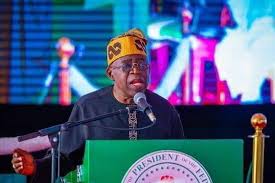By Tina Amanda
Civil society organizations have criticized President Bola Tinubu’s statement commemorating Ken Saro-Wiwa and the Ogoni 8, stating its failure to address longstanding justice demands.
The President, through his media aide, had issued a statement honoring the executed Ogoni leaders, acknowledging their sacrifices in fighting against harmful oil exploration and pledging a commitment to sustainable development in the Niger Delta.
In his statement, Tinubu admitted that the leaders faced severe repression for protecting Ogoni land from environmental degradation caused by oil extraction. He described their execution in 1995 by the military junta led by General Sani Abacha as a tragedy, stating, “We honor their memory by recognizing their sacrifices and pledging to strive for a future characterized by peace, justice, and sustainable development for all communities.”
While the groups welcomed the President’s acknowledgment, they emphasized that justice remains elusive for the Ogoni people. They noted that this was the first time a Nigerian government had admitted to the injustice of the killings but called for concrete actions, including the exoneration of the Ogoni 9, the release of memorial artwork confiscated by customs, and a halt to plans for renewed oil extraction in Ogoniland.
“As frontline civil society organizations focused on environmental justice, we are delighted that the President has deemed it appropriate to honor the memory of these martyrs of ecological struggle.
“We are particularly delighted that the President recognizes that they were murdered because they fought to protect their environment from harmful oil extraction activities that had polluted their lands and rivers, and poisoned their people.
“For clarity, it is important to note that the Nigerian military junta headed by General Sani Abacha authorized the hanging of Ken Saro-Wiwa, Saturday Dobee, Nordu Eawo, Daniel Gbooko, Paul Levera, Felix Nuate, Baribor Bera, Barinem Kiobel, and John Kpuine. The 9 were instrumental in mobilizing Ogonis under the Movement for the Survival of the Ogoni People (MOSOP), and had issued a set of demands contained in the Ogoni Bill of Rights which included calls to the Nigerian government to clean up the Ogoni environment and restore livelihoods of the indigenous people who had suffered decades of reckless oil extraction by Shell.
“MOSOP had called global attention to the poverty, neglect, and environmental destruction which decades of oil exploitation had bequeathed the Ogoni people. MOSOP demanded fairer benefits to the Ogoni people from oil, as well as remediation and compensation for the ecological damage caused by the activities of Shell.
“Their selfless mobilization and campaigning led to the 1993 expulsion of Shell from Ogoniland. The military government responded to this genuine concern with widespread militarization of Ogoniland and the Niger Delta region, mass killings, arson, and the eventual executions that left the world outraged.
“The 9 were murdered after the recommendations of a stage-managed tribunal and denied the opportunity to appeal.”
The civil society groups condemned the quasi-judicial process that led to the executions, alleging collaboration between the military government and Shell to suppress legitimate demands for ecological justice.
“As civil society organizations, we have consistently demanded an admission that the quasi-judicial process which resulted in the conviction of the Ogoni 9 was a mockery of justice orchestrated by the military government with the active collaboration of Shell to quell community demands for resource and ecological justice.
“What we continue to demand is the complete exoneration of Ken Saro-Wiwa and the Ogoni 8. This is the only strategy that will bring closure to the thousands of Ogonis who were victims of government-driven repression characterized by murders, rape, torture, and forced exile”.
The groups also criticized successive Nigerian governments for failing to address ecological and social justice concerns. They cited the confiscation of a memorial bus honoring Saro-Wiwa by the Nigeria Customs Service in 2015, which remains impounded despite court orders for its release.
“It is important to also note that the body language and the actions of successive governments in Nigeria have not always indicated the need to reconcile and bring about closure. In 2015, a memorial artwork in the form of a bus, designed in memory of the executed Ogoni leaders by friends in the United Kingdom was confiscated by the Nigeria Customs Service.
“All appeals to the government to release this memorabilia, including an order by the National Assembly and a judgment by the Federal High Court in Lagos, was denied. The bus remains locked up by the Customs Service in Lagos for absolutely no reason beyond provocation.”
The organizations urged the government to cease plans to resume oil activities in Ogoniland.
“We are equally concerned that the Nigerian government continues to make frantic efforts to resume oil extraction activities in the oil wells located in Ogoni territory after they were shut down in 1993.
“It is worrying that the government will decide to resume oil extraction when the pollution of the last decades has yet to be cleaned, and the recommendations of UNEP have yet to be fully complied with. How does one explain the fact that a site supposedly being cleaned up will resume full oil extraction activities with all the pollution that comes with it?”
They however recommended for the government to focus on ecological remediation, decommissioning old infrastructure, and restoring livelihoods. Secure justice for victims of military repression in the Niger Delta and release the Ken Saro-Wiwa Memorial Bus as a gesture of reconciliation.
They called for immediate steps to learn from the Ogoni experience and address ecological challenges across the Niger Delta, emphasizing that the world recognizes Ogoniland as a symbol of the costs of unchecked oil exploitation.
The statement was endorsed by the following organizations: Health of Mother Earth Foundation, We the People, Corporate Accountability and Popular Participation Africa, People’s Advancement Centre, Kabetkeche Women Development Resource Centre and Lekeh Development Foundation.




